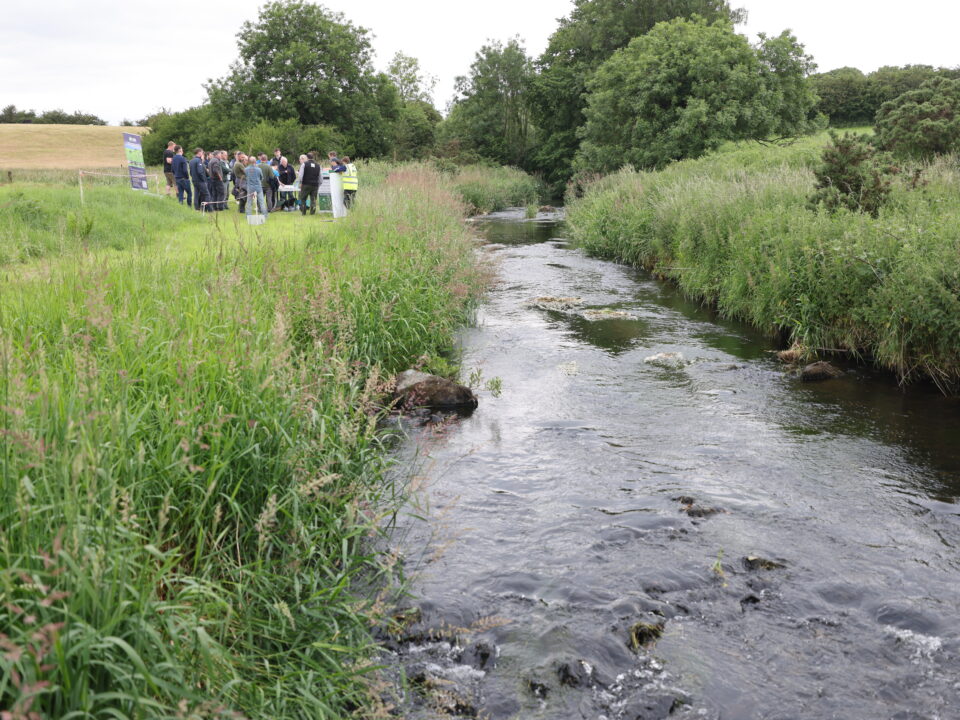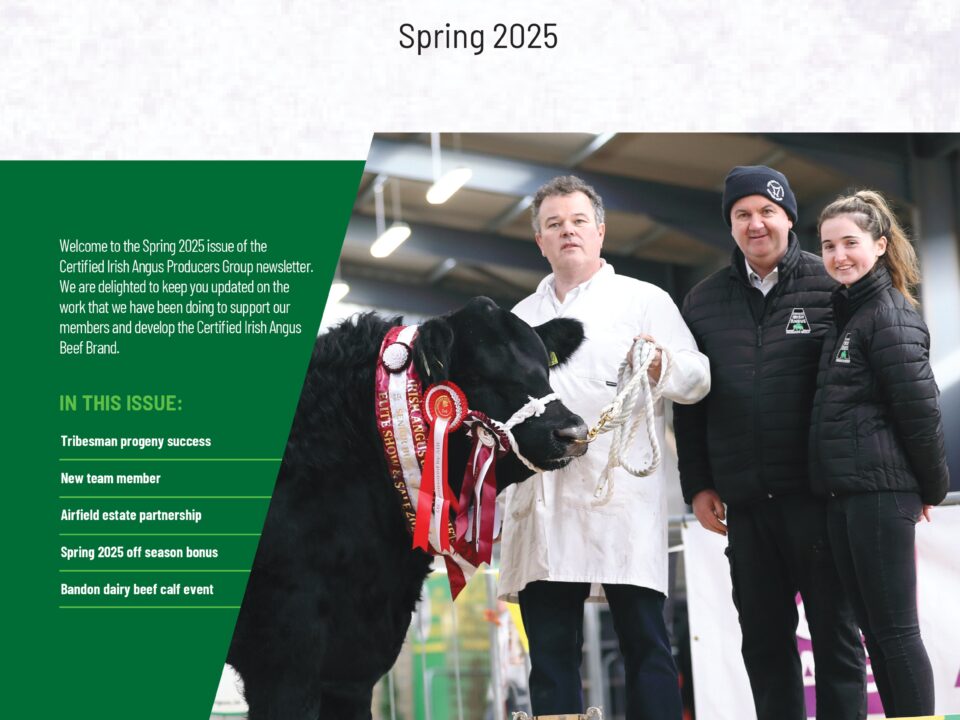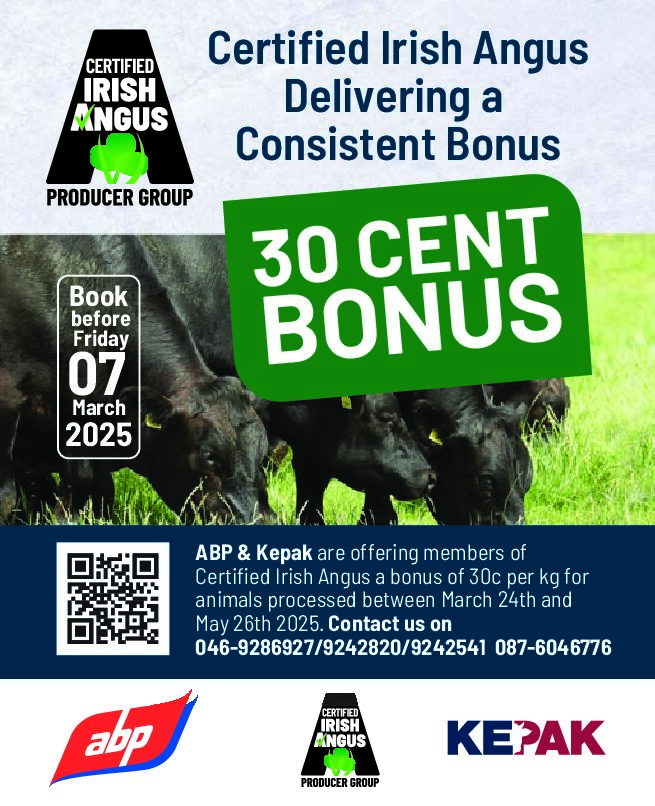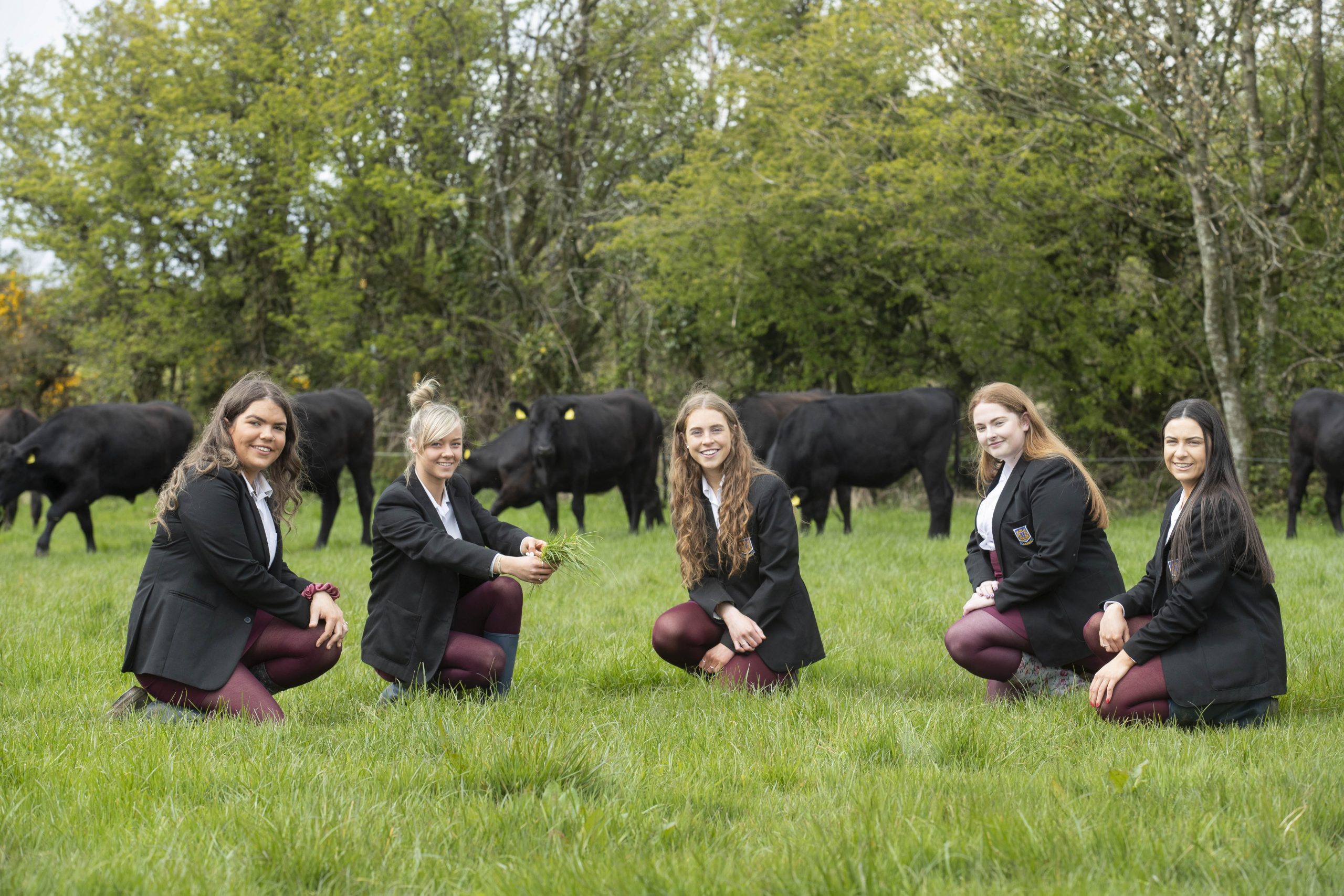
Here Come The Girls – Cork Students Crowned Winners of Ireland’s Leading Agricultural Competition
May 19, 2021
Six School Groups Announced As Finalists At Special National Ploughing Championships Event
September 23, 2021Terms and Conditions Certified Irish Angus Schools Competition
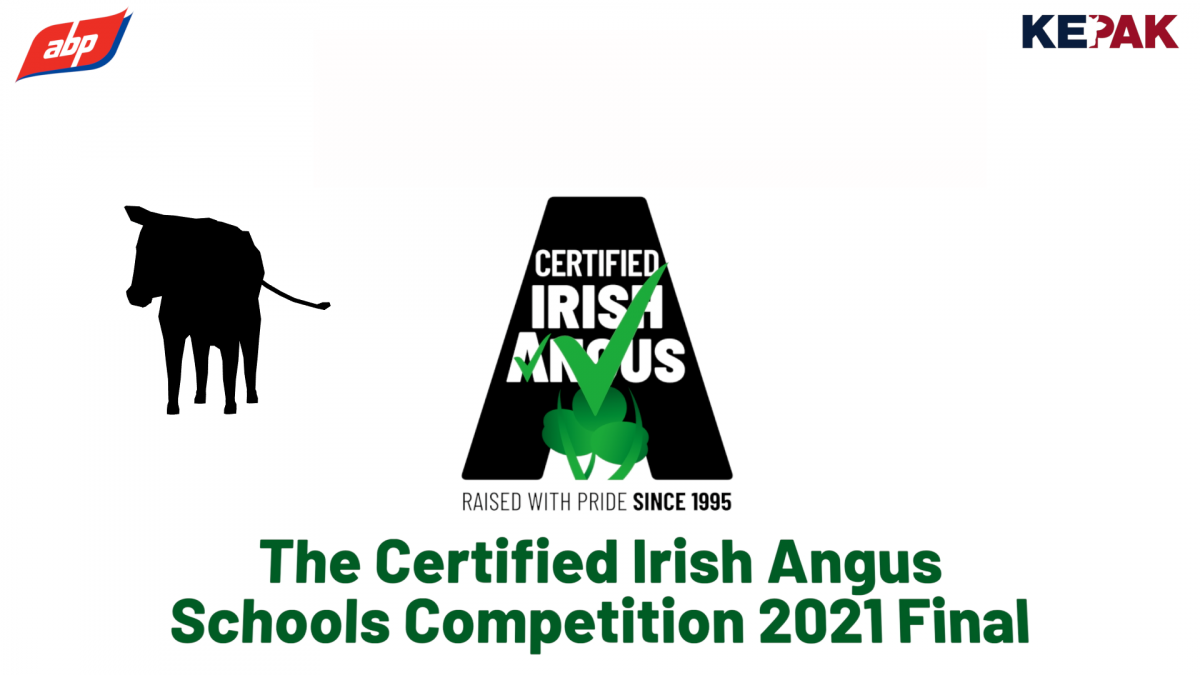
The following guidelines are designed to ensure that the Certified Irish Angus Schools Competition is conducted in as fair and efficient a manner as possible. The guidelines are subject to change at any time at the sole discretion of the organising group. Infringement of any of the rules listed below may lead to exclusion of individuals or schools from present and/or future participation.
The decision of the judges in relation to any breach of the rules shall be final.
General Rules
1. The Certified Irish Angus Schools Competition is organised and sponsored by Certified Irish Angus Producer Group, ABP and Kepak whose decision on all matters relating to the competition will be final.
2. To enter, a group of 2-4 students must enter by uploading a 3-minute video to YouTube as unlisted, which explains the following;
· Introduction to your schools and team members
· Role of Ag Science within the school
· Pick a project theme that you consider important such as improving Animal Genetics, Sustainable Agriculture, Farm Health & Safety, increasing Consumer Awareness of Quality Irish Beef
· Why would you like to win 5 Angus calves
YouTube video link should be emailed to schools@certifiedirishangus.ie and complete the online entry form from our website.
3. The closing date for receipt of entries is 3rd October 2025. Under no circumstances will late entries be accepted. A shortlist of entries will be invited to attend an interview based on their video. All members of the group must attend this interview.
4. Second Level students currently in Transition Year resident in the Republic of Ireland, are eligible to enter.
5. Projects that have been entered in other similar competitions cannot be accepted as entries.
6. Students attending Primary Schools or Third Level Colleges are NOT eligible to enter.
7. Projects must cover Irish Angus cattle production as a core part of their theme. The project should be predominately about the production cycle from calves through to beef cattle. It may also incorporate other items related to agriculture and agri-business, food promotion, consumption of beef. Students may use this information as part of their Leaving Certificate Agricultural Science Project.
8. Projects must be submitted as a group project.
9. Groups may only enter one project into the competition.
10. Schools may enter as many groups as they wish. Group projects will consist of either two, three or four members who must be from the same school.
11. Each group must appoint a group leader who will direct the work and later act as a spokesperson. All group members must fully participate in judging interviews.
12. All members of a group should be fully involved, share the work and be familiar with everything that is presented. The final work should reflect the co–ordinated efforts of all group members.
13. In exceptional circumstances, groups may wish to decrease or increase the number of people participating in their accepted group project team. Any such proposed changes need to be submitted in writing to the organisers before any change can be made detailing the proposed change(s) and the exceptional circumstances necessitating them. Failure to do so will lead to the proposed changes being rejected and the project being judged in the original grouping. The organiser’s decision as to whether such changes are acceptable will be final.
14. Groups can NOT set up social media pages at any stage during the competition.
15. This project involves live animals. Therefore, students must ensure that such studies are carried out in a safe manner and in accordance with the statutory regulations. Farm Safety – https://www2.hse.ie/wellbeing/child-health/child-safety-around-the-farm.html Also visit: https://eur-lex.europa.eu/legal-content/EN/ALL/?uri=celex%3A31986L0609
16. Students should be aware at all times of the dangers of dealing with livestock. They should familiarise themselves with best practice in this regard and should conduct themselves in accordance with standard Health & Safety Regulations as per their school and the farm on which the animals are kept. Animal welfare should be considered at all times and a copy of the Animal Welfare Code of Practice is available from the farm on which the calves are or from the organisers.
17. It is expected that all or the majority of the work for a project will be conducted either in the school, home or the outside environment. Understandably, some projects may involve visiting distant locations. Students may seek advice or information about their project from sources beyond their school, such as digital sourced, from government organisations, Universities, Institutes of Technology or other experts. However, the majority of students’ work should be conducted under the supervision of their relevant teachers, with, where appropriate, suitable levels of involvement by parents, guardians or other responsible adults.
18. A group may be part of only one project. Members of one group may not be members of another group.
19. Some groups who have entered a project may find themselves unable to complete it. It is very important that the organisers are immediately notified of this. If a project has to be withdrawn, the organisers must be notified immediately by e–mail.
20.The judges reserve the right to withhold awards in the event of projects not reaching a satisfactory standard.
21. If a project has not adhered to all the rules and regulations of this competition, the judges have the right to withhold awards or exclude the project at any stage during the judging process.
22. The judges’ decision in all matters relating to the award of prizes will be final.
23. Finalist groups must submit articles on the progress of the cattle and their project at regular intervals. These progress reports will be used in publications. Students will be notified of specific timings if deemed successful in their application.
24. Finalist groups must be available to attend the 2026 National Ploughing Championships and as part of this experience, be available at their designated stand to speak with the visiting public about their projects.
25. The organisers will NOT be responsible for any expenses incurred by the groups in travelling to or from the Ploughing Championships, or during their stay.
26. The finalist groups will be presented with their prize of 5 Irish Angus cross calves per group at the National Ploughing Championships 2026.
27. The calves will then be sent to a designated farm selected by the group to have the calves reared. The farm may be associated with their school or they may request help from the organisers in selecting a farm. That farm will need to apply and be verified as suitable for that purpose by the organisers and be Bord Bia Farm Quality assured or in the process of gaining Quality Assurance.
28. When the calves have been reared and are ready for slaughter, they must be slaughtered in either an ABP or Kepak plant selected by the organisers on a designated day. At this point, if the groups have completed all the requirements of the projects, they will receive the original value of the calves, plus any profit made during the period spent on the host farm after all reasonable costs have been deducted.
29. In early 2027, having submitted their completed projects, one of the finalist groups will be selected as the overall winner and that group will receive €2,000.
30. The organisers will commission a photographer to take photographs and videos of the cattle and the students from time to time, both on farms and at events. The organisers retain the right to use these photographs and videos for promotional purposes such as website or media.
31. For the avoidance of doubt, all students applying to enter the competition (or their lawful parents or guardians in respect of entrants under the age of 18) shall be deemed by virtue of the submission of an application and completion of the application process to have agreed to the use of photographs, project information, interview, film and recording material, in the manner and for the purposes set out in clause 30 above.
32. Every effort will be made by the organisers for fairness and equity in all judging processes. There is no mechanism for appeal or for the discloser of marks awarded at any stage of the competition.
Version 1.5 Updated 20/06/2025

